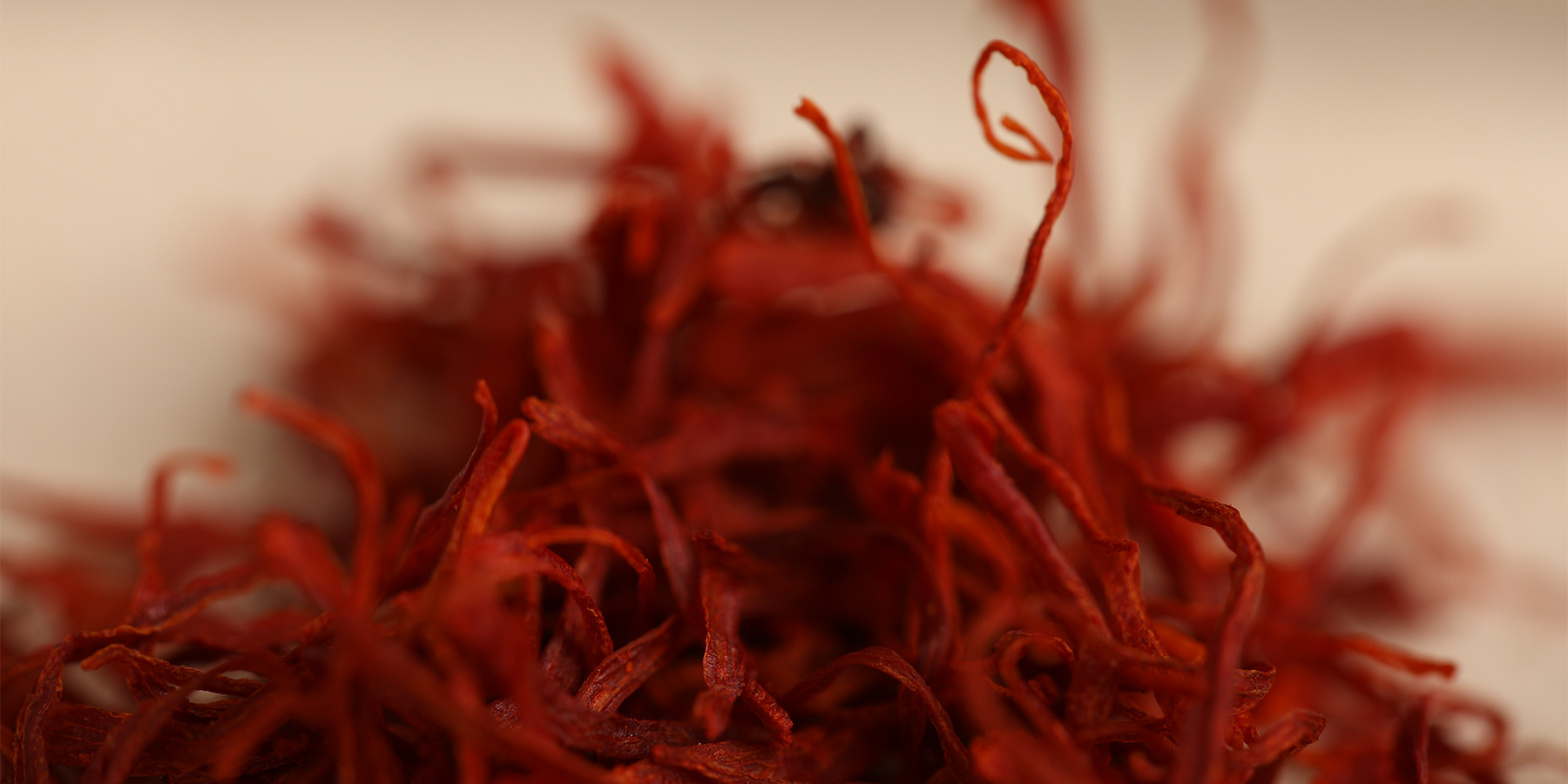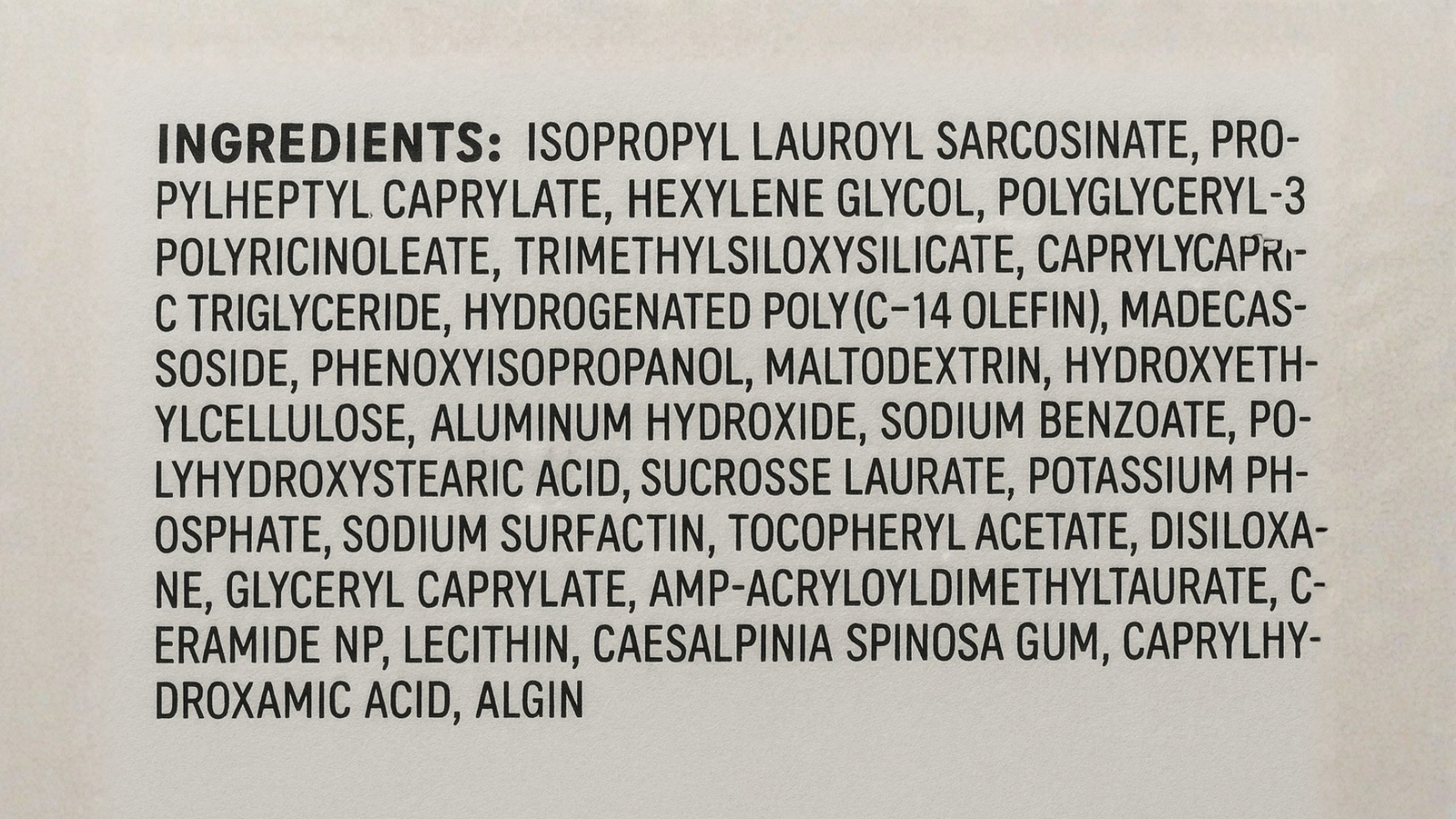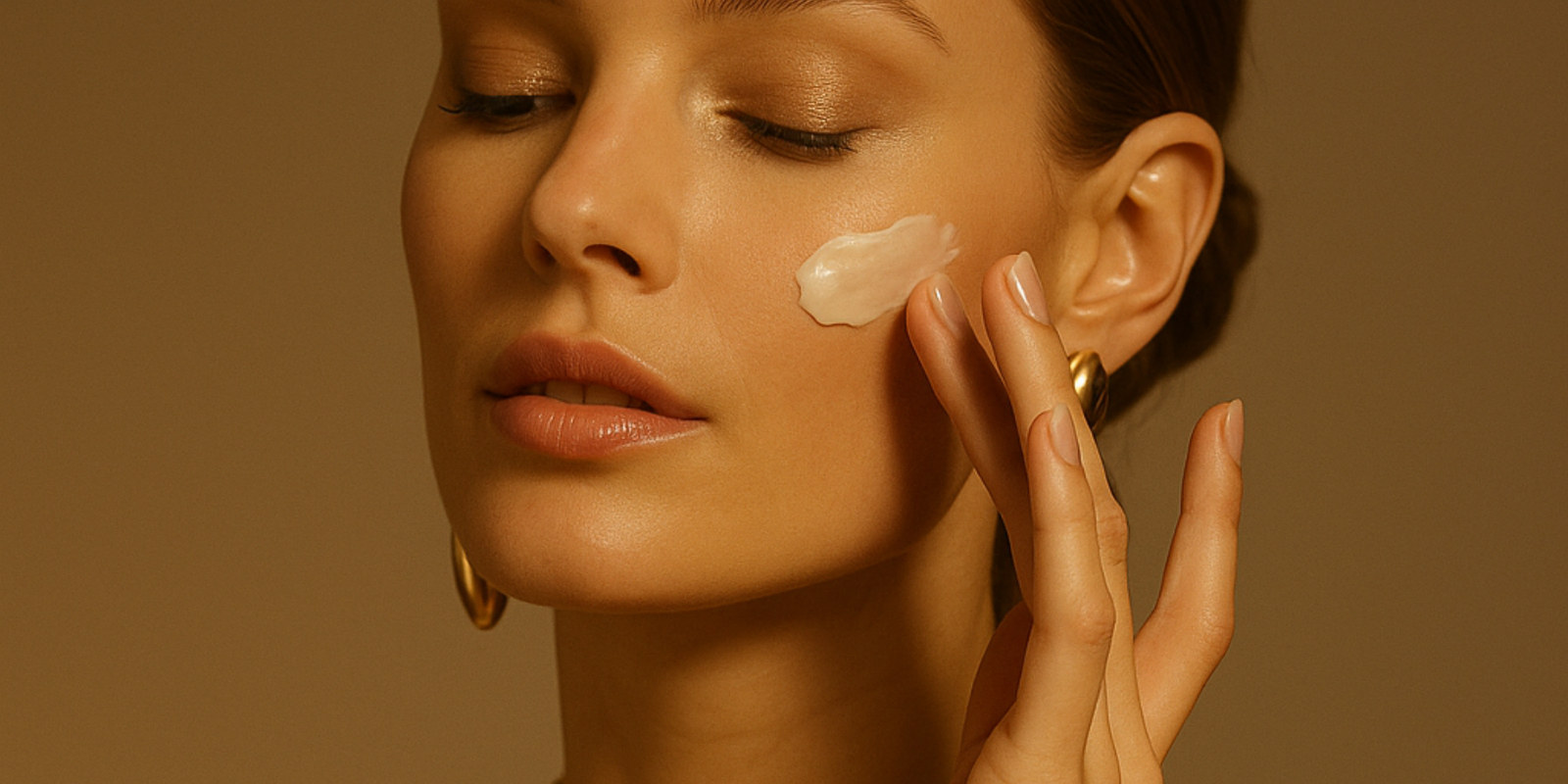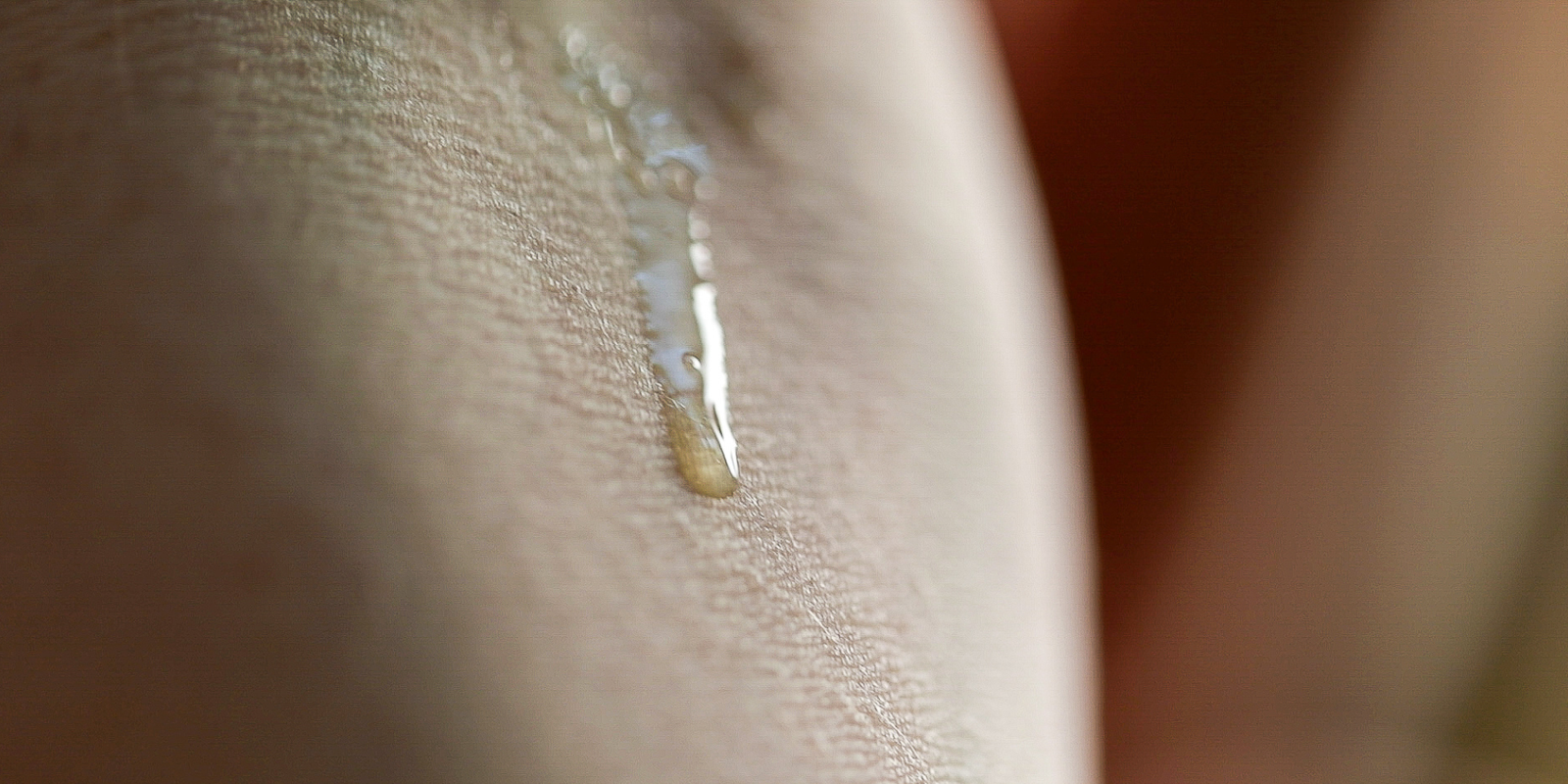EWG Verified & Leaping Bunny Certified | Free Gift $200+
EWG Verified & Leaping Bunny Certified | Free Gift $200+
Brighten Your Skin With Saffron

Brighten Your Skin With Saffron
Introduction.
Saffron is a spice revered for its vibrant red hue and the rich flavor it imparts to food and drink recipes. It is also a powerhouse ingredient for skincare, loaded with skin-brightening compounds. Saffron has been used in skincare preparations for thousands of years, and I felt it was crucial to include it in our Holy Grail Face Oil formula. In this post, I’ll go over exactly what Saffron is, what it does, and why you need to use it if you want to achieve radiant, glowing skin.
What is Saffron?
Saffron is a highly prized spice derived from the stigmas of the Crocus sativus flower, commonly known as the saffron crocus. Each saffron crocus flower produces only three stigmas, which must be handpicked during a limited blooming season, often lasting only a few weeks in the autumn. The stigmas are dried to preserve them and lock in all their beneficial compounds. The process to produce them is intensive, making it one of the most expensive spices in the world.
The scent of Saffron.
I absolutely adore the scent of Saffron. It is complex and distinctive, with a deep aroma that is both subtle and intoxicating. It is slightly sweet, with metallic hints of honey and lush hay/grass. It has a warmth and depth that is earthy and relaxing.
A brief history of Saffron in beauty.
Saffron has been used throughout history for thousands of years for culinary and medicinal purposes and beauty preparations. Historical records dating back to ancient Egypt show that Cleopatra used saffron in her baths to enhance her complexion. In Greek mythology, Saffron was associated with Hermes, the messenger of the gods; the ancient Greeks used Saffron in various ointments and potions to treat glowing skin.
Ancient Romans used Saffron for healing wounds and treating various skin conditions because of its anti-bacterial and anti-inflammatory properties. Saffron has also been a key ingredient in Ayurvedic medicine for centuries. It was used in various forms, such as pastes and oils to treat skin blemishes, improve skin tone, and increase the health and vitality of the skin.
The science behind Saffron and skin-brightening.
In skincare, Saffron is best known for its skin-brightening abilities. It contains over 150 unique compounds, but the primary one is a carotenoid called Crocin. Carotenoids are a class of naturally occurring pigments found in plants responsible for the bright red, orange, and yellow colors seen in flowers, fruits, and vegetables. They serve several biological functions, including photosynthesis, where they absorb energy from sunlight and protect the plants from photodamage.
Crocin, in particular, has incredibly potent antioxidant properties that help neutralize free radicals generated by environmental stressors like UV radiation and pollution. This protective effect helps prevent the premature aging of the skin, which can reduce the appearance of fine lines and sun spots. It also has powerful brightening properties, which give your skin a more radiant appearance.
Saffron in skincare: more than just brightening.
Anti-inflammatory properties.
While Saffron is predominantly recognized for its brightening properties, its benefits for the skin are multifaceted. It also contains compounds that have a powerful anti-inflammatory effect. Kaempferol and Quercetin, in particular, are proven to reduce redness and inflammation associated with various skin conditions, such as acne, eczema, and rosacea.
Antimicrobial activity and wound healing.
Safranal, a volatile (easily absorbable/vaporizable) oil found in Saffron, possesses antimicrobial properties that can effectively treat bacteria and fungi. This targets acne-causing bacteria and fungal skin infections. It also aids in the wound-healing process, which can help heal acne and other skin irritations.
Hydration and skin elasticity.
Derived from Crocin, Crocetin is a compound that has been studied for its benefits in improving skin hydration. It has been shown to strengthen your skin’s barrier function, which prevents excess water loss and helps your skin retain moisture. This mechanism will increase your skin’s elasticity, which allows your skin to remain supple and better resist the formation of fine lines.
How to incorporate Saffron into your skincare routine.
You can incorporate Saffron into your skincare routine in a couple of different ways.
Toner
You can easily make your own facial toner by soaking a few strands in distilled water overnight. It’s important to use distilled water because it will resist microbial growth and stay fresh for longer. Aim for a quarter cup of water to about three strands of Saffron. Once it has soaked overnight, you can strain the mixture and transfer it to a glass spray bottle for easy application. You can mist your face with it morning and evening (it’s nice to use before applying face oil or moisturizers), but make sure to store it in the refrigerator.
Masque
Crush a pinch of Saffron threads into a small bowl and mix with raw honey or agave nectar (about a tablespoon) to make an easy and effective facial masque. Apply to dry skin after cleansing and let it sit for up to 15 minutes before rinsing off. The honey and agave have natural humectants in them, which will improve hydration levels and soften your skin. You could make a larger batch of this masque and store it at room temperature indefinitely- it doesn’t go bad, and the longer the Saffron sits in it, the more it will infuse its benefits.
Holy Grail Face Oil
Alternatively, you could use a skincare product that contains Saffron, like our Holy Grail Face Oil. We soak Saffron into each batch for 30 days at room temperature (heat will degrade the natural compounds) before straining the pure, infused oil. This imparts all of the beneficial compounds of Saffron into the oil, so you get all the skin-brightening benefits in your daily skincare routine.
Conclusion.
Saffron has played an important role in beauty rituals for thousands of years for a good reason—it’s incredibly effective at transforming the appearance of your skin. With its potent anti-inflammatory, skin-brightening, healing, and hydration properties, it provides a full spectrum of results that make your skin glow with health and vitality. Try incorporating it into your skincare routine and unlock the benefits for yourself.
Resources.
https://pubmed.ncbi.nlm.nih.gov/27638711/
https://pubmed.ncbi.nlm.nih.gov/32640351/
Also in Apotheca Edit

The Hidden Cost of Fillers: You’re Paying for Ingredients That Irritate Your Skin
Many skincare products rely on “filler” ingredients—fragrance, dyes, and texture agents that offer no real skin benefit and may contribute to irritation. Learn how to spot them and choose formulas built only with active, purposeful ingredients.

The Dangers of Designer Skincare
The price tag of luxury skincare doesn’t mean rare ingredients and better results. Many designer formulas prioritize packaging gimmicks and prestige over true skin health—often using silicones, synthetics, and preservatives that quietly damage your skin barrier. Learn about label transparency and why “premium” isn’t always better to reveal what skin nourishment really looks like.

The Top 10 Best (And Worst) Oils to Use On Your Face
I get asked all the time about using oils like avocado, olive, and coconut on the face—and the truth may surprise you. Not every “natural” oil is good for your skin. In this post, I break down the best and worst oils to use, what their comedogenic ratings really mean, and how to choose the ones that will actually nourish your skin instead of clogging it.
Subscribe
Sign up to get the latest on sales, new releases and more …
Reviews
See why 1000's have simplified their skincare with Flora Mirabilis.
